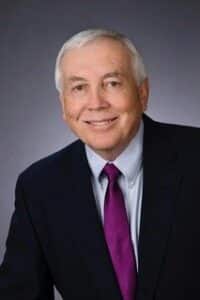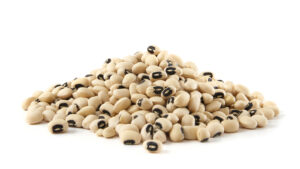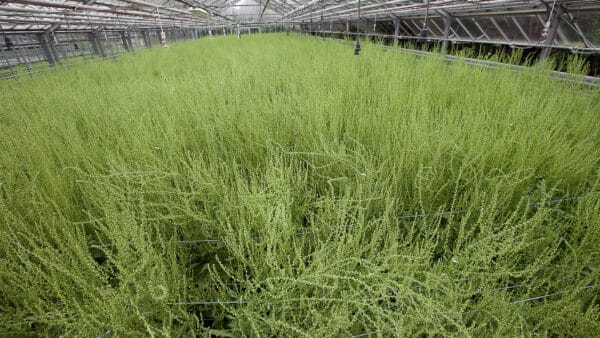Some former CEOs and EVPs who specialize in the seed industry came together to provide executive resources to accelerate the performance of startups, tuneups, turnarounds, mergers and growth businesses.
Finding Black Ink (FBI) is a small group of former CEOs and EVPs who are experts in agriculture and specialize in seed businesses and seed-related technologies. Collectively, they have more than 300 years of experience spanning crops from vegetables, to row crops, to algae and forestry in companies of every size from startup to multinational.
They have worked on six continents, advised regulatory boards, and actively managed situations from rapid growth to sudden crisis.

“We have all served on industry boards and held executive and advisory board positions for ASTA, the USDA, foreign and domestic seed businesses, banks, state associations, local hospital and community boards,” says John Nelsen, FBI founder. “Each member of the Finding Black Ink team brings unique perspective developed from hands on seed industry experience.”
In 2016, Nelsen and Alan Ostercamp were observing several small, startup companies and noted that the challenges facing these new companies were no different from the challenges they had encountered earlier in their careers.

“We had both recently retired and as we were working with companies in transition for a variety of reasons. We saw an opportunity to draw from our experience and make a positive contribution to the growth of these emerging companies and their respective executives,” Ostercamp says. “We reached out to five more experienced executives who share our passion to help agricultural businesses grow and formed Finding Black Ink.”
The core philosophies that guide Finding Black Ink’s experts align with the factors today’s CEOs consider daily: objectivity, creativity, integrity, collaboration, and, perhaps most importantly, market understanding.
“During the early stages of forming a new business enterprise, the executive challenges are comparatively straightforward and predictable. As business activities gain speed, the challenges become more complex. This is when an outside perspective becomes most valuable,” Nelsen says.
Members of FBI include:
¬∑ John Nelsen —A 45-year veteran of the seed industry, Nelsen has held positions of CEO, EVP and Director of Worldwide Production. He served two terms on the advisory board of Rabo Bank and the USDA Plant Variety Protection Office, 10 years on the executive board of the American Seed Trade Association. He is the founder of Finding Black Ink.
¬∑ Alan Ostercamp — He has more than 44 years of U.S. and global seed industry experience, including 30 years with Monsanto and 14 years with RiceTec. Ostercamp is the co-founder of Finding Black Ink.
¬∑ Ed Shonsey — Shonsey is merger and acquisition expert and specializes in the global commercialization of technology. He has been a CEO and CFO. He is currently the Chairman of the Board for ArbroGen.
¬∑ Don Wertman — He has more than 50 years seed and industry experience, with many executive management roles including seed production, marketing, seed conditioning and distribution for row crops, vegetable and turf seeds. Don is the former EVO, COO, President CEO of Seedway.
¬∑ Craig Newman — Newman has 38 years seed experience. He is the former president and CEO of AgReliant Genetics, the third largest U.S. corn seed company.
· Paul Bratney, He has 40 years seed industry facility design, engineering, construction and management experience on three continents.
¬∑ Jim Tobin — Tobin has 31 years global executive leadership and product management experience with Monsanto, and graduated Harvard University with an MBA.
· Four of the seven members of FBI are former Chairmen of ASTA. Six of the seven are former executive board members of ASTA.
Recent FBI Blogs:
Fly the Plane: Focus on the Strategy
Jim Tobin says even when things are really tough, he remembers to fly the plane.

“That’s my advice, inspired by now-retired U.S. Airways pilot Chesley “Sully” Sullenberger who made an unexpected water landing in New York’s Hudson River in 2009, to any agribusiness executive in today’s fast-paced, technology-based industry,” he says.
Tobin believes that their role as ag executives should be focused on the overall business strategy that will keep their companies and their products viable and profitable into the future.
“We must keep our eye on the customer, recognizing and responding to their needs today and projecting and creating their needs for tomorrow,” he says. “It’s not an easy job; if it were, companies wouldn’t need CEOs.”
CEOs Need Teams with Unified Vision
By the same token, CEOs need teams they can trust and that have a unified vision toward the customer. The best leadership teams, the CEO and the “lieutenants”, are collaborative, accountable, co-dependent and customer-focused.
“My career as a seed-industry leader has been greatly influenced by my active involvement with the American Seed Trade Association,” Tobin says.
“This is a group of talented and dedicated leaders who take off their company hats to share ideas about issues important to our work: public policy, regulatory matters, intellectual property rights and trade issues.”
He believes in a productive and interactive atmosphere, FBI find actionable ways to overcome challenges facing the industry, relying on their individual and shared experiences to design solutions.
“The exciting thing about the seed industry is that we are able to give growers so many more choices than ever before. By delivering herbicide tolerance and insect protection through the seed, we are helping growers gain more productivity and profit.”
To the grower’s benefit, researchers are continuing to push the industry forward by identifying technologies at a faster and faster rate, says Tobin.
The Importance of Sustainability
As the seed industry continues its focus on advanced development, Tobin says they must remain attuned to sustainability. Yields have continued to grow, which allows the agricultural industry to produce more on the same number of acres.
Demand for food and fiber are growing, as our population increases, but the land available for farming remains the same or is diminishing.
“We must do more with less and do so in a way that is sustainable. Our growers demand it: so many of them want to leave the land better than it was left to them. The seed industry can help them do that, by improving productivity, lessening tillage and keeping more soil in place.”
Beyond Negotiations: Addressing Equally Complex Issues During a Merger

Shonsey specializes in global commercialization of technology. He is the mergers and acquisitions expert at Finding Black Ink. He has led and participated in numerous acquisitions, divestitures and funding procurements. He was a naval officer and received several commendations for leadership during combat operations
Shonsey is presently working with sustainable food and energy projects in North and South America, Europe and Asia, targeting improved growth and profitability
When it comes to an agribusiness merger, the executives managing the companies through that process need to keep two priorities in mind, food sustainability and customer benefits.
“Those two priorities are tightly intertwined and co-dependent but should be balanced with an experienced analysis of key elements such as future cash flows, freedom to operate and focused strategic planning,” Shonsey says.
“A merger or acquisition offers opportunity for innovation, new products and services, expanded market access, more choices and increased value. It is these values that must be communicated by the companies‚Äô executives throughout the entire employee base.”
Beyond the Bottom Line
The executive resources at Finding Black Ink have the career experiences needed to aid agribusiness executives during a merger. The core philosophies that guide Finding Black Ink’s experts align with the daily challenges encountered by CEOs during a merger: objectivity, creativity, integrity, collaboration, and, perhaps most importantly, market understanding.
For more information about Finding Black Ink, go to findingblackink.com













